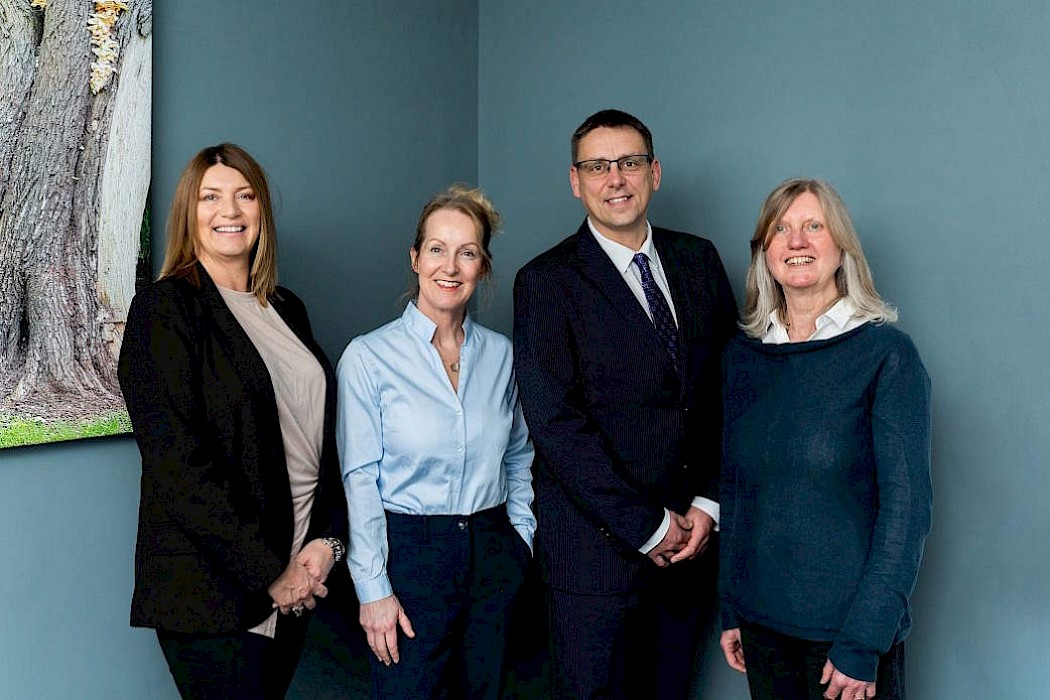If you’ve experienced medical negligence, you may need reassurance that you’re receiving the best legal advice – especially after feeling let down by healthcare professionals.
Accreditation is one of the ways you can guarantee that legal advice is consistent with best practice.
There are a few specialist accreditations that medical negligence solicitors can hold. While looking for a medical negligence solicitor to represent you, you may have come across terms like ‘AvMA Specialist Panel Member’, ‘Law Society Clinical Negligence Accreditation’ or ‘APIL Senior Litigator’.
These all act as benchmarks for competency, expertise, and client care.
The road to becoming an accredited solicitor is not an easy one. The application processes are highly rigorous and a solicitor must meet strict criteria. Successful applicants are held to a high standard and must be reaccredited regularly.
In this blog, we break down what they all mean and how accreditation benefits claimants.
Do you really need an accredited lawyer?
Strictly speaking, you are not obliged to instruct an accredited lawyer, or even a lawyer at all, to make a medical negligence claim. However, acting as a litigant in person is a path fraught with difficulty and stress. Instructing a non-specialist firm is inviting trouble generally — beware of 'dabblers' in the marketplace!
Instructing an accredited lawyer can make a significant difference in both your experience and the outcome of your claim. While there are never any guarantees with medical negligence claims, accreditation acts as a quality assurance that you should receive excellent client care throughout the claim from someone truly knowledgeable in this complex are of the law who will give you the best legal advice possible.
Being in the confident, competent and capable hands of a lawyer that has passed the rigorous standards of accreditation should make the legal process smoother, more efficient and less stressful.
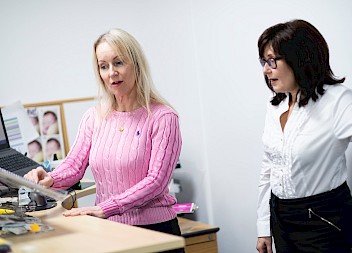
Medical negligence solicitors gain accreditation for things like clear communication, compassionate support, and showing dedication to their clients’ best interests. They’ve usually got years of experience in handling a range of medical negligence claims of all complexities and must back this up with case reports and evidence of how they work alongside experts and counsel.
Having one or many accredited lawyers within a law firm also benefits the whole practice. They pass on their specialist knowledge to other team members and act as an example of what less experienced lawyers can aspire to become in the future.
At Medical Solicitors, we’re proud to have many accredited lawyers on our team. As a niche law firm that solely focuses on medical negligence claims, we are committed to building a team of competent legal professionals that uphold our ethos of supporting patients, getting answers, securing justice and improving healthcare.
What do the different medical negligence accreditations mean?
AvMA Specialist Clinical Negligence Panel
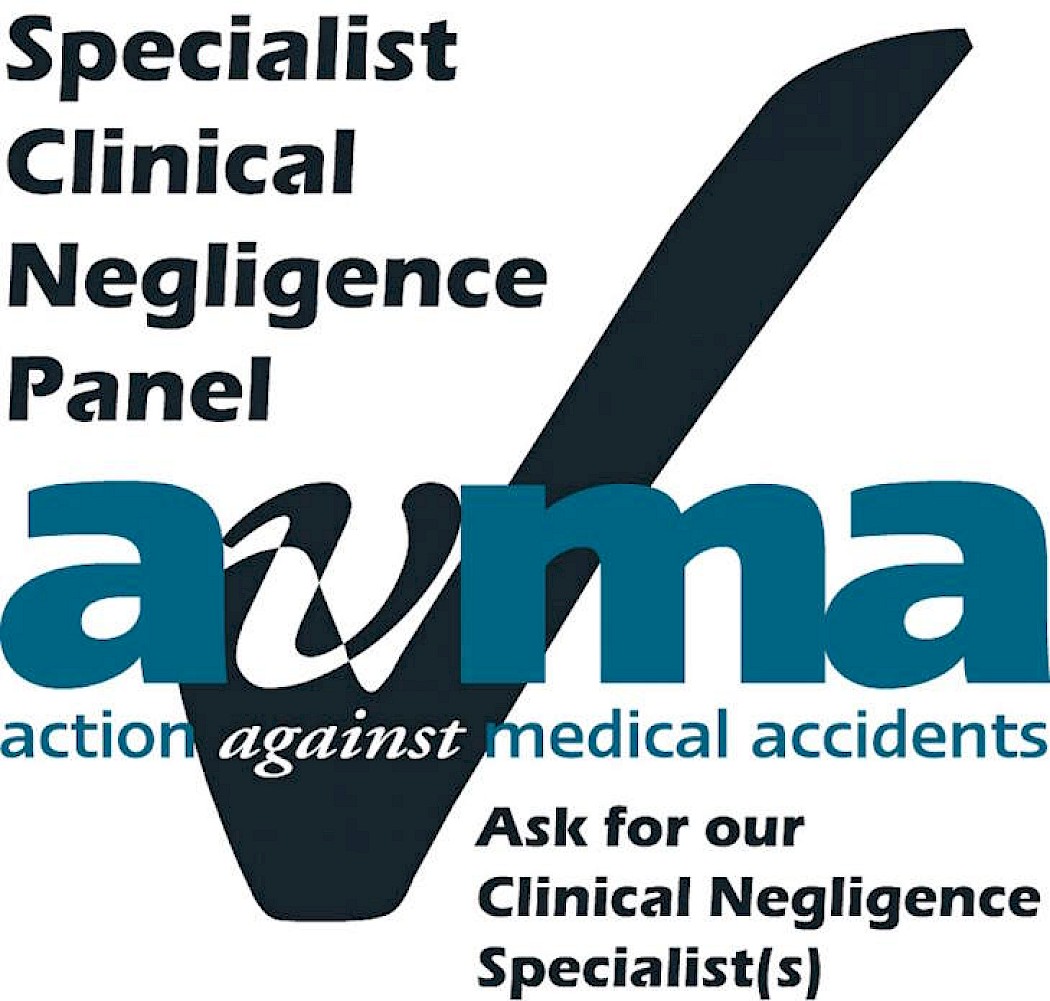
This was the first accreditation scheme for clinical negligence lawyers. Action Against Medical Accidents (AvMA) is an independent patient safety charity that was set up in 1982. Over the last 40 years, they have given legal advice to hundreds of thousands of people affected by avoidable harm in healthcare.
The charity is responsible for making clinical negligence a specialism within legal practice. They pioneered the concept after an influx of people who felt let down by their legal advisors. What followed was their specialist panel membership which provides an essential quality mark for legal practitioners.
Only a few hundred solicitors are considered good enough to be panel members. Sarah Johnson, head of our York office, is one of them. She has been an AvMA panel member since 1998 and was reaccredited for another five years in May 2024. Another solicitor is currently compiling her application to AvMA so we are hopeful of having two AvMA Panel members in 2024.
To become an AvMA panel member, you must have five years’ Post-Qualified Experience (PQE) and have worked for a Lexcel accredited law firm for at least six months.
You must also have a substantial track record of handling a broad range of medical negligence cases, including catastrophic injuries. You must also have experience in preparing cases for trial and inquest.
When applying to the AvMA panel, you must submit five case reports for cases settled within an 18-month period. Two of these must have had compensation over £100,000, one must have been prepared for trial, and one must have been discontinued after receiving medical reports.
Applicants then go through a two-phase assessment including an interview with panel members. Only then will they be told if they’re successful. Panel members must then apply for reaccreditation every five years.
Law Society Clinical Negligence Accreditation
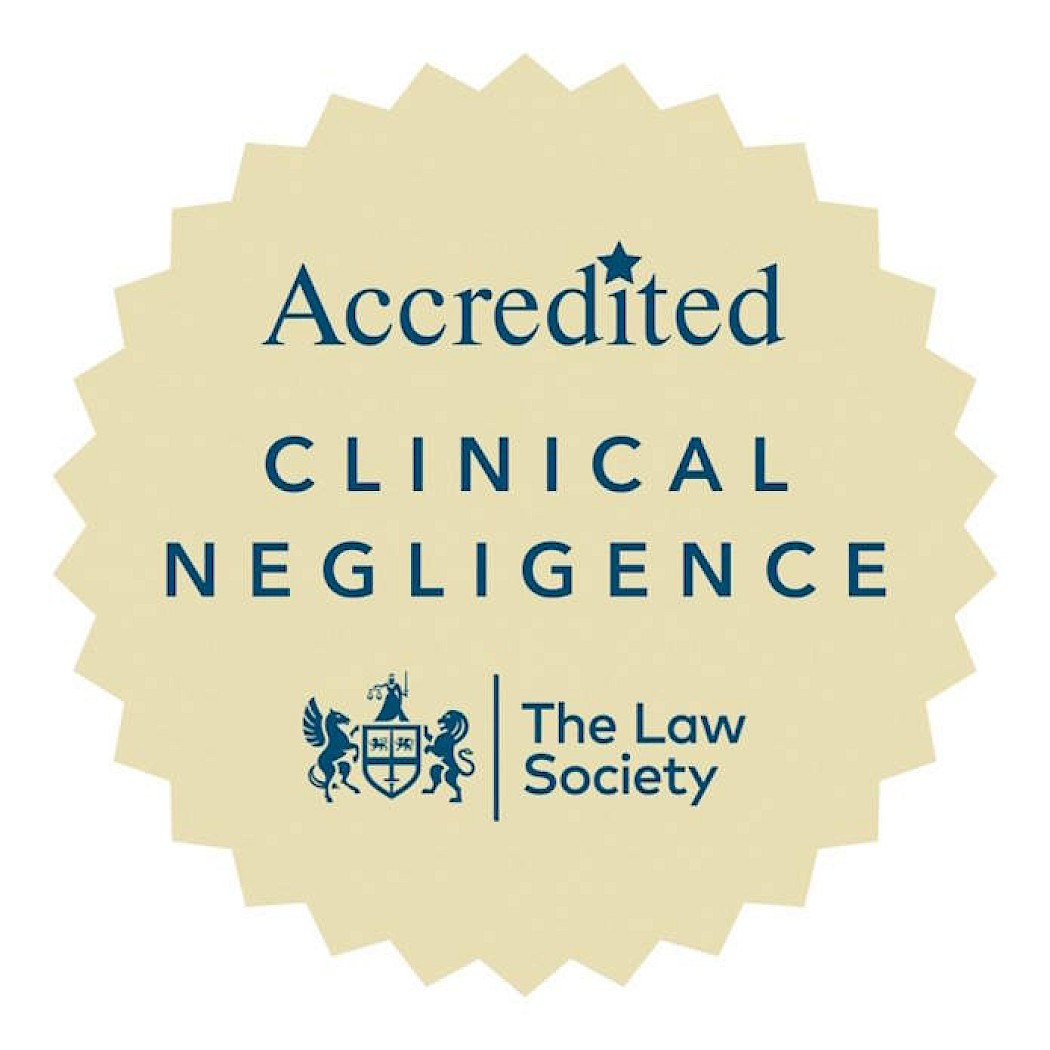
The Law Society is an independent professional body for solicitors in England and Wales. Their nationally recognised panel only accepts solicitors with high levels of knowledge, experience and practice.
As a claimant, Law Society accreditation ensures that you can identify legal practitioners with proven competency and expertise.
At Medical Solicitors, we have three solicitors who hold Law Society accreditation: two of our directors Caroline Moore and Christine Brown, and Sarah Johnson, head of our York office.
All three are grade A solicitors – the highest level for fee earners – and each have more than three decades’ experience in the legal industry.
Sarah is one of only 180 lawyers in the country to hold both Law Society and AvMA accreditation.
Christine was one of the first clinical negligence solicitors in South Yorkshire to gain Law Society accreditation. She paused her membership for some years while raising a family, but was recently readmitted to the panel in April 2024.
Another lawyer is also currently going through the assessment process. As a firm, we are also assessing which of our other fee earners should submit applications later in the year.
You must have at least three years’ experience to apply for Law Society accreditation. The process takes around six to eight weeks and you have to submit 24 cases you have handled over the last three years. Six of these must have gone to case management and three had meetings with experts. If you are successful, you need to apply for reaccreditation every three years.
APIL Litigator Accreditation
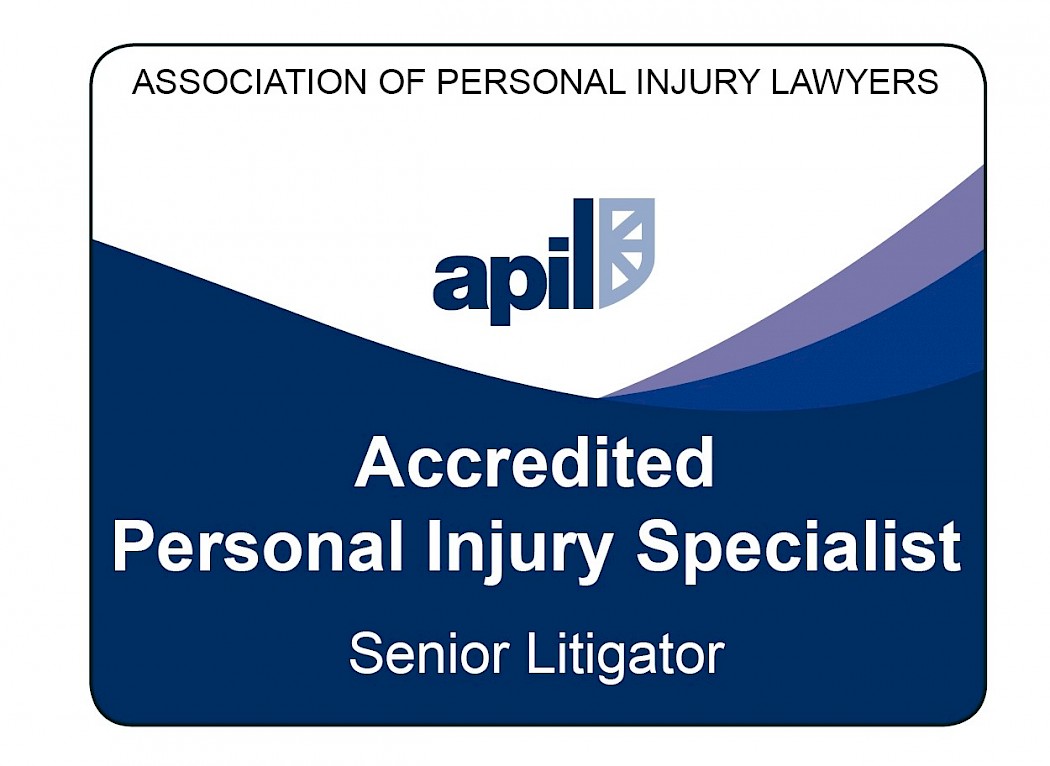
The Association for Personal Injury Lawyers (APIL) is the largest lawyer association. It was established in 1999 to demonstrate competence and specialist expertise.
Their accreditation scheme helps claimants determine which lawyer is best to represent them. It ranges from senior litigator right up to senior fellow – those who have demonstrated outstanding contributions and accomplishments in personal injury law and practice.
You can also be a member of APIL, benefitting from access to training and networking opportunities. But accreditation is a step above that.
While we do have many fee earners who are members of APIL, currently Caroline Moore and Sarah Johnson are senior litigators with APIL and have been for many years.
To maintain your status with APIL, you have to do 16 hours of APIL training each year and revalidate every five years.
Lexcel for law firms
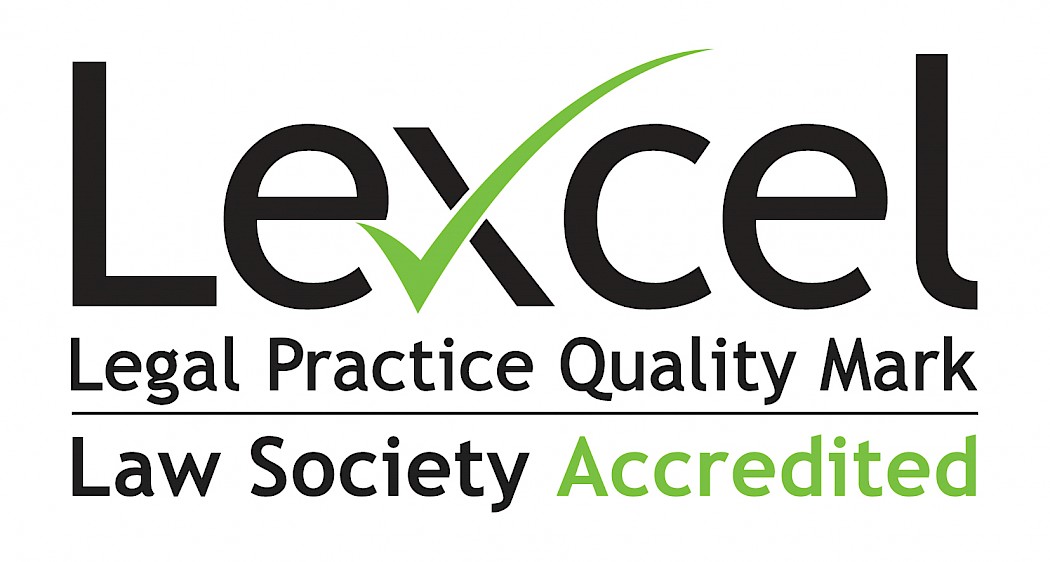
Lexcel is another accreditation by the Law Society, but this time for law firms rather than individuals. It was introduced in 1998 and sets a precedent for client care, compliance and practice management. Having the Lexcel accreditation shows that firms have effective risk, people and financial management, promote better customer service and client care, and are well structured.
Firms are judged on eight categories such as structure and policies and strategic plans, and compliance with the standard is ascertained by rigorous independent assessment.
Having Lexcel accreditation improves a law firm’s marketability and gives them a competitive edge. It attracts clients to the firm and helps them with their decision-making when choosing between firms,
As a company, it acts as a framework upon which to manage core areas of the business like staff, clients, risk and finance. It also helps firms achieve the highest possible level of excellence and look at ways to keep developing and improving.
With increasing compliance and regulation of the legal profession, the Lexcel accreditation encourages firms to keep updated on these matters. This in turn helps to increase confidence in both our clients and third parties such as insurance underwriters. Above all, it helps firms set a consistent approach that all staff should be working to.
Once firms achieve Lexcel accreditation, they must have annual maintenance visits plus a full reassessment every three years. Medical Solicitors has held Lexcel accreditation for many years. At the end of May 2024, we passed our Lexcel reassessment with flying colours and will be reassessed again in 2027.
At Medical Solicitors, we are very proud that a Lexcel assessor commented that in 30 years of conducting assessments she had never come across such a well managed firm!
